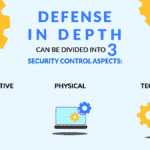Data Deduplication: Keeping Your Business Data Clean and Efficient
In today’s digital business environment, data drives decision-making, customer engagement, and daily operations. But as the volume of information continues to grow, so does the problem of duplicate data. When multiple copies of the same files are scattered across systems, your storage becomes bloated, your backups become inefficient, and your team wastes valuable time searching for the right version of a document.
That’s where Data Deduplication comes in. It’s a smart, automated process that identifies and removes duplicate data across your systems, helping you reclaim storage, reduce costs, and maintain data accuracy. For businesses using hybrid or cloud environments, implementing Data Deduplication is essential to maintaining both performance and productivity.
What Is Data Deduplication
Data Deduplication is a data compression and optimisation technique that removes redundant copies of data. It analyses your information at either the file or block level, ensuring only one unique instance of a file or data block is stored. Any subsequent copies are replaced with pointers that reference the original.
For example, if ten employees save the same 100 MB presentation to a shared drive, traditional storage systems will use 1 GB of space. With Data Deduplication, only one copy is stored, reducing that total to just 100 MB.
This not only saves storage capacity but also improves backup speed, reduces bandwidth requirements, and lowers data management costs.
Why Data Deduplication Matters
Poor data hygiene can have far-reaching effects on business operations. When decision-making is based on incomplete or duplicated information, outcomes can be costly and unreliable. The problem becomes even more complex in hybrid work environments, where files are constantly shared between cloud platforms, devices, and on-premises systems.
Implementing a strong Data Deduplication strategy can:
-
Improve data accuracy and reliability
-
Reduce storage and backup costs
-
Increase network and system efficiency
-
Enhance data recovery times after incidents
-
Support compliance and governance requirements
For businesses using Exodesk’s Cloud Solutions or Managed IT Services, Data Deduplication integrates seamlessly with backup and disaster recovery systems to deliver faster, more secure performance.
The Connection Between Data Deduplication and Business Continuity
Duplicate data doesn’t just take up space—it slows recovery during an outage. When your backup systems are filled with redundant information, restoring operations can take longer than necessary.
A well-implemented Data Deduplication process strengthens your Business Continuity Plan by ensuring that backups are lean, consistent, and up to date. When disaster strikes, you can recover the right files faster and with less complexity.
It also supports Business Impact Analysis by giving you an accurate understanding of where critical data resides and how it contributes to your key processes.
Types of Data Deduplication
There are several approaches to Data Deduplication, each designed for different infrastructure needs and storage environments. Understanding these methods will help you determine which solution fits your business best.
1. Source Deduplication
This removes redundant data at the source—before it’s transmitted to a backup server. By eliminating duplicates early, it reduces network load and shortens backup windows.
2. Target Deduplication
This occurs at the destination, such as a backup server or appliance. It’s ideal for organisations that centralise data from multiple sources before deduplication occurs.
3. Inline Deduplication
As data is being written to storage, the system checks for duplicates in real time. This saves space immediately but requires more processing power.
4. Post-Process Deduplication
Also known as asynchronous deduplication, this happens after data is written to storage. It reduces impact on system performance during active backup windows but may require additional time to complete later.
Each method has unique advantages depending on your storage architecture, backup schedule, and performance requirements. Exodesk can help you evaluate and implement the right combination to achieve optimal results.
Data Deduplication Best Practices
Duplicate data is an unavoidable challenge in every business, but proactive management can significantly reduce its impact. Here are five best practices for implementing Data Deduplication effectively.
1. Choose the Right Deduplication Type
Different deduplication methods serve different needs. If your business handles large volumes of cloud-based data, inline deduplication may be best. For those relying heavily on backup servers, target deduplication may offer better performance. Consult with IT experts to determine what’s right for your environment and workload.
2. Classify and Sort Data
Not all file types deduplicate efficiently. For instance, compressed or encrypted formats like MP4, JPEG, and ZIP already contain unique data patterns that limit deduplication efficiency. Classifying your data helps you identify where deduplication will have the most impact.
3. Focus on Efficiency, Not Reduction Rates
Some vendors promise specific space reduction percentages, but these vary widely depending on the type of data and its rate of change. Instead of focusing on theoretical reduction rates, prioritise consistency, reliability, and compatibility with your existing infrastructure.
4. Apply Deduplication Strategically
Deploy deduplication where it makes financial and operational sense. Secondary locations, such as backup servers or disaster recovery sites, usually benefit the most. Applying deduplication everywhere may reduce performance and increase costs unnecessarily.
5. Account for Long-Term Costs
Effective deduplication isn’t only about storage savings. Factor in the ongoing costs of maintenance, management, and system resources. The goal is to achieve sustainable efficiency, not just short-term space reduction.
How Data Deduplication Supports Cyber Resilience
Data Deduplication is often viewed as a storage optimisation technique, but it also plays a vital role in cybersecurity and risk management.
By reducing unnecessary copies of sensitive information, deduplication limits the number of potential targets for cybercriminals. In the event of a breach, fewer duplicate data sets mean less exposure and faster containment.
Combined with Exodesk’s Cyber Security services and Email Security protection, deduplication contributes to a stronger, more unified data protection strategy.
It also improves recovery times after ransomware incidents by ensuring only unique, validated data blocks are restored. This minimises downtime and ensures data integrity when recovering from encrypted or corrupted files.
Integrating Data Deduplication Into Backup and Cloud Systems
Modern backup solutions and cloud storage platforms include built-in deduplication features. However, they’re only effective when properly configured and maintained.
At Exodesk, we help businesses implement Data Deduplication across:
-
On-premises backup appliances and servers
-
Cloud storage and hybrid environments
-
Virtualisation platforms
-
Disaster recovery systems
We ensure that your deduplication strategy integrates seamlessly with your Cloud Solutions and overall IT environment. Our experts monitor performance, adjust configurations, and optimise storage to keep your data fast, secure, and accessible.
The Future of Data Deduplication
As data volumes continue to grow exponentially, Data Deduplication will become even more essential. Emerging technologies such as machine learning and AI are enabling adaptive deduplication systems that automatically recognise new data patterns and adjust optimisation techniques in real time.
Future advancements are also expected to integrate deduplication directly into storage hardware, improving efficiency without sacrificing performance. Businesses that adopt these intelligent data management systems early will gain a significant edge in storage cost reduction and operational resilience.
How Exodesk Helps Businesses Optimise Their Data Management
Exodesk works with organisations across New Zealand to deliver smart, scalable data management strategies. Our Data Deduplication solutions are tailored to your environment, ensuring your information remains clean, efficient, and recoverable.
We provide:
-
Detailed data audits and hygiene assessments
-
End-to-end deduplication setup and management
-
Integration with existing storage, backup, and cloud systems
-
Ongoing performance monitoring and support
-
Expert consulting on data lifecycle management
Whether your business is small or enterprise-scale, Exodesk can help you streamline your infrastructure and unlock the full value of your data.
Frequently Asked Questions
1. What is Data Deduplication?
It’s a data optimisation process that removes duplicate copies of information, storing only one unique instance to save space and improve efficiency.
2. How does Data Deduplication differ from compression?
Compression reduces file size by encoding data more efficiently, while deduplication eliminates duplicate data blocks entirely.
3. Where should Data Deduplication be applied?
Typically in backup and secondary storage systems where redundancy is high. It can also be integrated into hybrid cloud environments.
4. Does deduplication affect performance?
Inline deduplication may impact performance slightly, while post-process options reduce this effect by processing data after storage.
5. How does Data Deduplication improve security?
By reducing redundant copies of sensitive data, deduplication limits exposure in case of a breach and simplifies backup encryption and monitoring.
6. How can Exodesk help with Data Deduplication?
We design, deploy, and maintain deduplication strategies that improve data efficiency and integrate seamlessly with your IT systems.
Final Thoughts
In an era where data growth shows no signs of slowing, Data Deduplication is no longer a luxury—it’s a necessity. It supports cost savings, enhances system performance, and strengthens data recovery processes.
Exodesk helps New Zealand businesses stay in control of their data with tailored deduplication strategies and expert IT management.
To start optimising your data environment, contact Exodesk today or connect with us on LinkedIn to keep up with more insights.


